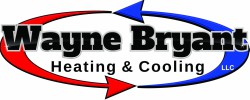Average Americans spend around 90% of their time indoors. So, it makes sense to spend time, money, and energy to make your living spaces more comfortable. However, one aspect is typically overlooked that can affect your overall well-being and health: air quality.
This guide, compiled by leading HVAC service professionals, will discuss the importance of indoor air quality and how it is linked to your HVAC.
If that piques your interest, keep reading to learn more.
Airborne Contaminants
Indoor spaces typically have 2 to 5 times higher concentrations of pollutants than the outdoors. These include particles like dust, pollen, pet dander, mold, and volatile organic compounds (VOCs). These unwelcome guests can trigger allergies and breathing problems.
Dust and pollen make the air stuffy and provoke sneezing fits. Pet dander, especially for those with furry friends, can worsen allergies. Mold loves damp spots, and inhaling mold spores can lead to respiratory issues. VOCs come from common household products and can cause headaches and irritate your eyes and throat. Keeping these contaminants in check is vital for maintaining a comfy and healthy home environment.
This leads us to our second point.
Who Is Affected by Poor Indoor Quality?
We know that poor indoor air quality can lead to a host of health problems. However, who do these problems affect? Unfortunately, they affect everyone but especially those with preexisting conditions. Poor indoor quality can worsen allergies and trigger or aggravate asthma, making it difficult for people to breathe.
Even those with healthy lungs are at risk of developing respiratory issues due to excess exposure. Kids are particularly vulnerable, as their immune systems are still developing. The elderly and those with other health conditions, like heart disease, also face heightened risks.
HVAC Systems and Air Quality
Good ventilation is essential to bring outdoor air inside, diluting pollutants and maintaining a healthy atmosphere. This is where HVAC systems come in.
These systems do two key tasks: they filter and circulate air. By pulling in air and passing it through filters, they weed out dust, pollen, and other pesky particles. This cleansing process leaves the air much healthier.
To filter the air, HVAC systems use different kinds of air filters, ranging from standard to HEPA filters. Standard filters capture larger particles, like dust and hair, keeping the air cleaner. HEPA filters are the champs when it comes to trapping tiny allergens, like pollen and pet dander. They work by forcing air through a fine mesh that catches even the tiniest of particles.
Once clean, the HVAC system circulates the filtered air throughout your home. This constant flow helps in removing contaminants, making your living space more pleasant.

Looking to improve your home’s indoor air quality? Trust the certified HVAC installers at Wayne Bryant Heating and Cooling LLC. We’re your locally owned, licensed, and insured HVAC services in Wake County committed to delivering top-notch service, ensuring a comfortable living environment. Our experts guarantee a hassle-free installation, with same-day completion and thorough walkthroughs.
Get in touch with us now to learn more.

